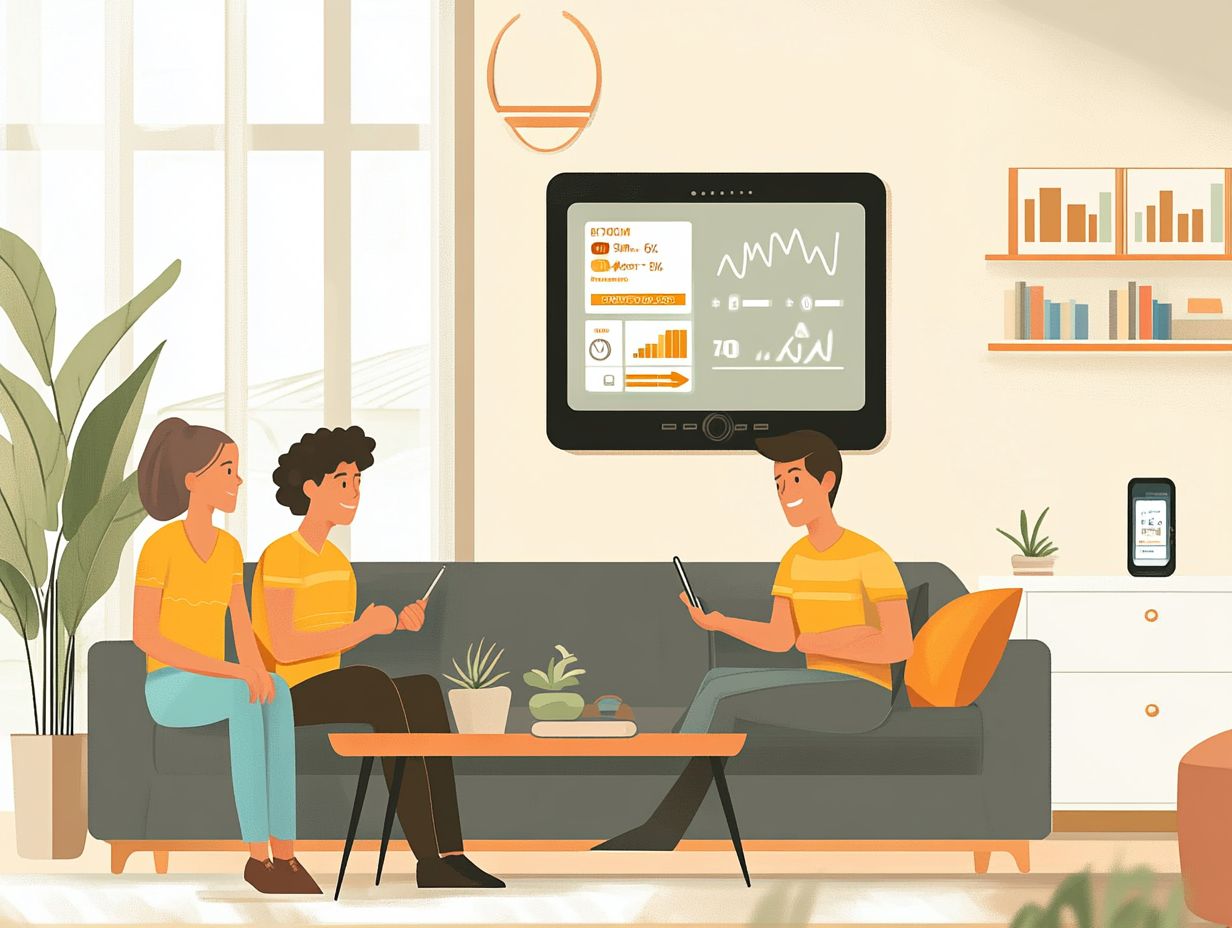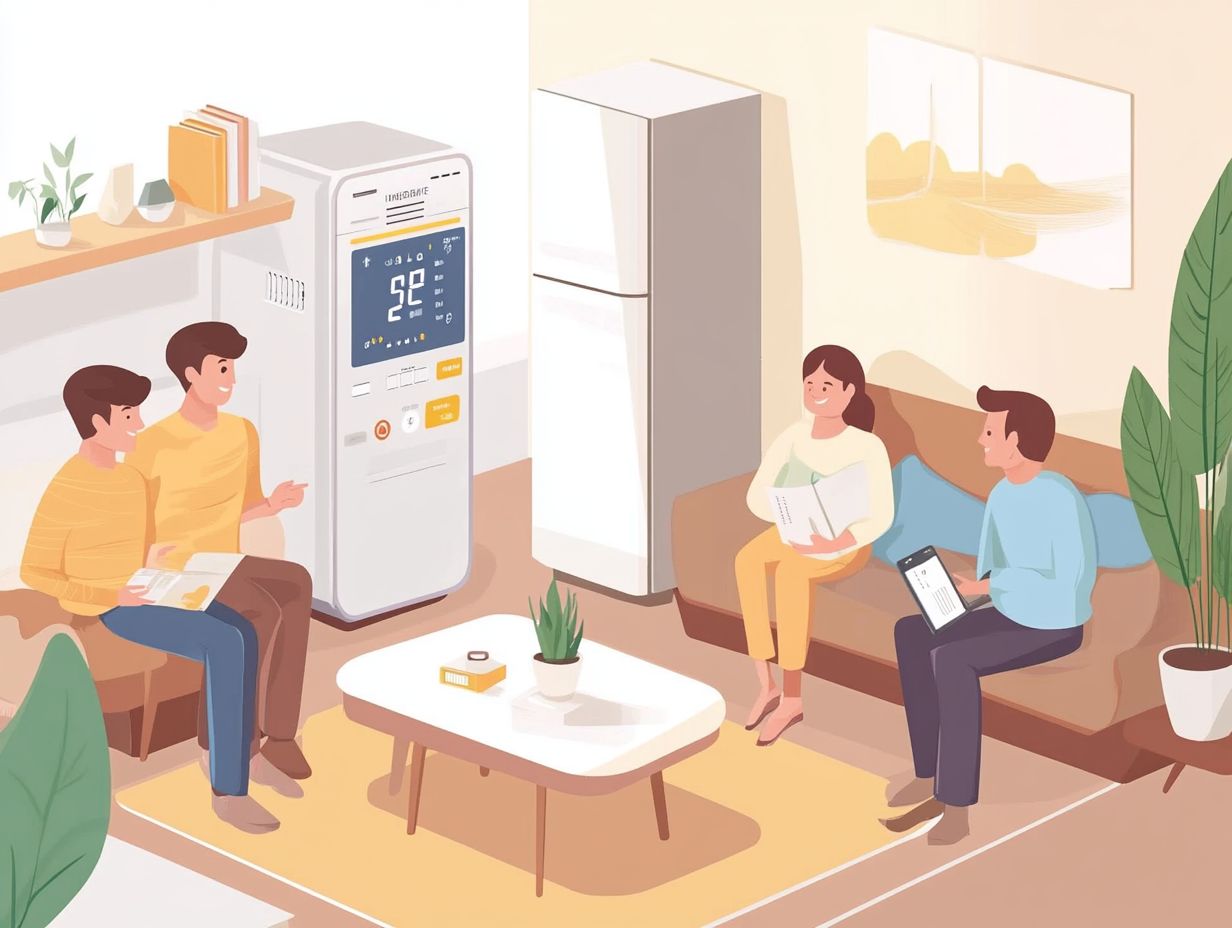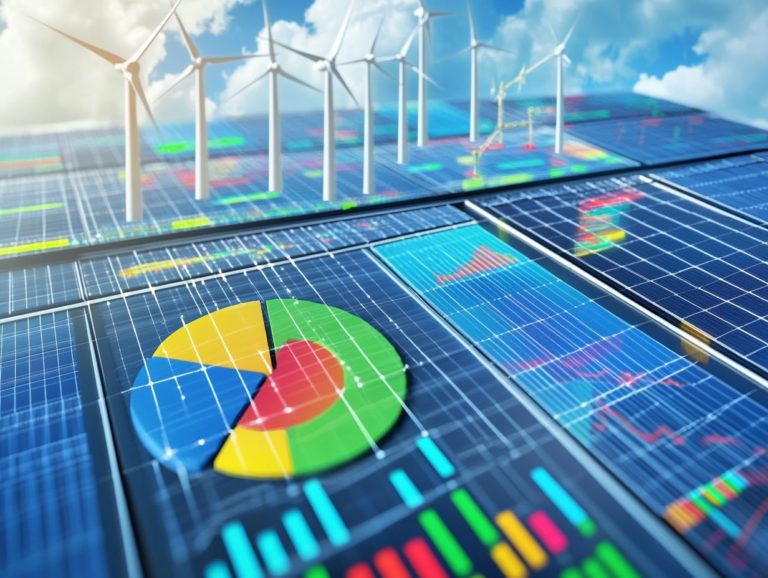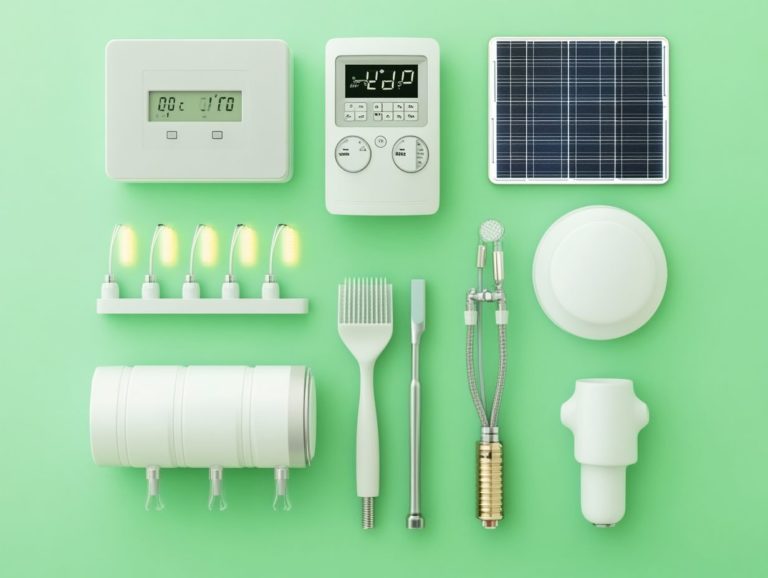The Importance of Home Energy Management
Managing energy use at home has never been more essential, especially with rising utility costs and increasing environmental concerns.
Home Energy Management, or HEM, refers to the practices that empower you to monitor and optimize your energy consumption. This can unlock significant savings and lead to a smaller carbon footprint.
This article delves into the fundamentals of HEM, highlighting its many benefits and key components, such as smart thermostats and energy monitoring systems. We will also explore effective implementation strategies and practical tips to enhance your home s energy efficiency.
Explore how even small changes can lead to considerable savings and a more sustainable lifestyle!
Contents
- Discover Key Takeaways:
- Get to Know Home Energy Management
- The Benefits of Home Energy Management
- Key Components of Home Energy Management
- How to Implement Home Energy Management
- Tips for Maximizing Home Energy Efficiency
- Frequently Asked Questions
- What is the importance of home energy management?
- How can home energy management help me save money?
- What are some ways to improve home energy management?
- Why is it important to be mindful of energy consumption at home?
- How does home energy management benefit the environment?
- What are some tools or technologies that can assist with home energy management?
Discover Key Takeaways:

Implementing home energy management systems can lead to cost savings and a reduced environmental impact.
Smart thermostats and energy monitoring systems are key components of effective home energy management.
Small changes, like using energy-efficient lighting and appliances, can have a big impact on home energy efficiency.
Get to Know Home Energy Management
Understanding Home Energy Management is essential for homeowners aiming to optimize energy usage, cut costs, and learn about the importance of energy efficiency to positively impact the environment.
This approach combines various strategies and technologies designed to enhance energy efficiency by harnessing renewable sources like solar panels, along with advanced monitoring systems.
By conducting energy audits and employing smart technologies, you can transform your residential energy systems. This reduces reliance on fossil fuels while dramatically decreasing carbon emissions and greenhouse gases.
What is Home Energy Management?
Home energy management is your key to systematically monitoring and controlling energy consumption in your home. Using smart tech to monitor home energy use can help maximize efficiency and minimize costs.
This innovative strategy employs advanced monitoring systems that provide real-time insights into your energy usage patterns. This enables you to make well-informed decisions.
These systems often collaborate with automated control mechanisms. This allows you to adjust energy consumption based on peak usage times and the efficiency of your appliances.
By incorporating renewable energy sources like solar panels, you reduce dependence on traditional electricity grids. This enhances the overall sustainability of your household energy practices.
The result? You enjoy lower utility bills while contributing to a greener environment through a reduced carbon footprint.
The Benefits of Home Energy Management
Home energy management offers exciting benefits that go beyond saving money. You can experience substantial reductions in energy costs while also making a meaningful contribution to the environment.
This approach also lowers carbon emissions and greenhouse gases, creating a more sustainable future for everyone.
Cost Savings and Environmental Impact

Implementing effective home energy management practices leads to remarkable cost savings for homeowners while significantly reducing carbon emissions and greenhouse gases.
By optimizing your energy use, you could see your utility bills drop by as much as 30%. This is especially true when you leverage smart technologies and energy-efficient appliances. This financial relief enhances your budget and contributes to broader environmental objectives.
Statistics suggest that improving energy efficiency in your household can reduce carbon dioxide emissions by nearly 3,000 pounds each year. As these practices become more common, the collective impact creates a more sustainable future, ensuring that both your finances and the planet benefit from smarter energy consumption.
Key Components of Home Energy Management
The key components of home energy management are essential for creating a more efficient living space, and understanding what a home energy management plan is can help you achieve that.
By integrating smart technologies, conducting comprehensive energy audits, and utilizing efficient heating, ventilation, and air conditioning systems, you can significantly enhance energy efficiency and reduce consumption.
These elements work together harmoniously, ensuring your home operates at its best while minimizing waste.
Smart Thermostats and Energy Monitoring Systems
Smart thermostats and energy monitoring systems are essential for managing your home’s energy consumption. They allow you to track usage in real time and enhance efficiency through automated controls.
These cutting-edge devices use smart technology that learns your habits, adjusting heating and cooling based on occupancy and the time of day.
With features like remote temperature control via smartphone apps, you can manage your energy use from anywhere. This ensures comfort while minimizing waste.
You ll receive notifications about unusual energy spikes, prompting you to investigate potential inefficiencies and encouraging energy conservation practices.
By adopting these technologies, you reduce your carbon footprint and enjoy significant savings on your energy bills. They are critical for modern energy management.
How to Implement Home Energy Management
Implementing home energy management requires a thorough strategy. Start with conducting energy audits. This foundational step allows you to optimize energy consumption and enhance efficiency.
Steps for Setting Up an Effective System

Setting up an effective home energy management system requires meticulous planning. Start with energy audits to assess your current energy usage and identify areas for improvement.
After completing the audits, select smart technologies tailored to your needs think programmable thermostats, energy-efficient appliances, and smart lighting systems. These innovations elevate convenience and significantly reduce energy consumption.
Once the smart devices are installed, implement energy optimization strategies. This could involve:
- Adjusting your usage patterns
- Establishing schedules
- Using real-time energy monitoring to track your savings
By following these steps, even novice users can create a more sustainable energy footprint while maximizing savings.
Tips for Maximizing Home Energy Efficiency
Maximizing your home s energy efficiency requires a blend of practical tips and smart technology implementation. Doing so can lead to significant energy savings and reduced overall consumption.
Small Changes for Big Savings
Small changes in your daily routine can lead to big energy savings.
For example, adjusting your thermostat settings a few degrees can optimize your heating and cooling costs.
Investing in energy-efficient appliances is another smart move; they significantly reduce electricity consumption over time.
Conducting regular energy audits reveals areas where energy is wasted, allowing you to take action.
By integrating these straightforward changes into your routine, you can create a more sustainable living environment while enjoying lower utility bills.
Frequently Asked Questions
What is the importance of home energy management?

Home energy management is crucial for reducing energy consumption, saving money on utility bills, and understanding what a home energy management system can do for promoting environmental sustainability.
How can home energy management help me save money?
By monitoring and controlling your energy use, you can identify areas to cut back on consumption and save money on your utility bills.
What are some ways to improve home energy management?
Simple ways to improve home energy management include using energy-efficient appliances, sealing air leaks, and practicing energy-saving habits like turning off lights when not in use.
Why is it important to be mindful of energy consumption at home?
Excessive energy consumption leads to higher utility bills. It also harms the environment, causing air pollution and climate change.
By being mindful of our energy use, we can reduce our carbon footprint. This helps protect our planet for future generations.
How does home energy management benefit the environment?
Reducing energy consumption lowers the demand for energy sources like oil and coal. This helps decrease air pollution and greenhouse gas emissions.
Home energy management also conserves natural resources and protects wildlife habitats.
What are some tools or technologies that can assist with home energy management?
Many tools can assist with home energy management. Smart thermostats, energy monitoring systems, and energy-efficient appliances help you track and control your energy use.
These innovations make it easier to save energy and cut costs!






